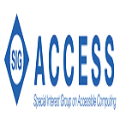Web3 and the metaverse are being driven by issues of trust with incumbent internet providers and the potential for a new form of digital society. The market for large-scale social and immersive metaverse has low adoption and may not meet societal or business needs. From a business perspective, metaverse is not a good choice for remote collaboration. The term "digital society" may be more relevant and extend to spatial and augmented reality technologies, Web2, digital money, and trust. Investment in the recent Web3 bubble is coming from Facebook/Meta and others, with a focus on distributed financial tooling and digital assets in the metaverse. A global ledger (such as blockchain) may be necessary to create transferable digital goods across society. Crypto has several problems, but its main strength is in creating "money-like networks." It is unclear which technology will succeed, but the tools are available now for integration and testing. The UK is imposing significant controls and restrictions on internet use and metaverse applications, which may impact small companies. New open source tooling from StabilityAI may address issues of accessibility, creativity, language barriers, safeguarding, and governance. Image generation ML may enable the creation of collaborative global networks for virtual production. AI and ML, or "supported creativity" or "augmented intelligence," blur the boundaries between the digital and physical world. Building an inclusive, open, and federated metaverse with transparent governance is a complex challenge.
翻译:“数字社会”一词可能更加相关,并扩展到空间和扩展的现实技术、网络2、数字资金和信任。对最近的网络3泡沫的投资来自Facebook/Meta和其他方面,重点是分布式金融工具和数字资产。全球分类账(如块链)对于在全社会创造可转让的数字产品可能是必要的。加密有好几个问题,但其主要优势在于创建“类似货币的网络 ” 。 目前还不清楚哪些技术会成功,但目前已有工具可用于整合和测试。英国正在对互联网的使用和反向应用实施重大管制和限制,这可能会影响小公司。稳定国际的新开放来源工具可能解决无障碍、创造力、语言障碍、保障和治理等问题。图像生成者可能支持全球网络的透明性,或者支持全球网络的透明性。



